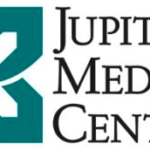 According to the Florida Department of Elder Affairs, there are an estimated 42,155 people age 65-plus with probable Alzheimer’s disease in Broward County. Perhaps of greater concern is that research shows that only 16% of U.S. seniors receive regular cognitive assessments during routine health check-ups.
According to the Florida Department of Elder Affairs, there are an estimated 42,155 people age 65-plus with probable Alzheimer’s disease in Broward County. Perhaps of greater concern is that research shows that only 16% of U.S. seniors receive regular cognitive assessments during routine health check-ups.The healthcare community must address these alarming numbers. One way to bridge the care gap is through early detection so patients can be provided with access to information, treatment and support.
The Memory Disorder Center at Broward Health North provides free memory screenings to help with early diagnosis and also offers community education on early recognition of memory impairment issues. The Memory Disorder Center’s interdisciplinary team educates the community on the importance of maintaining cognitive health and screenings.
Once a diagnosis of Alzheimer’s disease or related condition occurs an individualized plan is developed to enhance function and quality of life for the patient. Additional consults, referrals, education and support help manage the chronic disease. Staff promote positive behavioral health, optimize medication therapy, assess safety and driving, facilitate advanced care planning and end-of-life care, assess care partner needs, and obtain services and support.
Clinical trials are also essential to patient care and advancing Alzheimer’s disease research. The Memory Disorder Center provides patients and caregivers with access to new treatments, genetic studies, clinical drug trials, behavioral studies and caregiver research.
Clinical trials and research available to Alzheimer’s patients include:
• The Alzheimer’s Disease Neuroimaging Initiative, where investigators are studying brain images and biomarkers in people with normal cognitive aging; mild cognitive impairment (MCI), a disorder that may precede Alzheimer’s disease; and early stages of Alzheimer’s, to develop better indicators of the disease and its progression.
• Alzheimer’s disease genetics studies, where researchers analyze DNA from persons with and without the disease to identify genes that may be Alzheimer’s risk factors.
• Clinical trials that are researching new treatments, such as drugs or devices, as well as prevention methods and changes in diet or lifestyle.
“Without clinical trials, there can be no better treatments, no prevention and no cure for Alzheimer’s disease, said Nora Uhrig, director of the Neurological Institute director at Broward Health North. “Research can provide hope for those who are diagnosed.”
The Memory Disorder Center also recognizes that an Alzheimer’s diagnosis and resulting treatment affects not just the patient, but also the family. To provide support and education to caregivers, the Memory Disorder Center hosts monthly support groups, an annual four-hour Alzheimer’s Disease Initiative educational program for respite providers, daycare specialists, nurse aides and healthcare professionals, and a Care Assistance Program (CAP) designed to educate family or friends about caring for a dependent loved one.
“CAP speakers discuss the disease process, behavioral strategies, medications, legal issues and resources available for Alzheimer’s patients in the community,” said Milena Cedeno-Oblinger, RN, coordinator of the Memory Disorder Center.
Broward Health North’s commitment to increasing the number of eligible seniors who receive comprehensive cognitive screenings, treatments and support will continue until the care divide is closed.

























